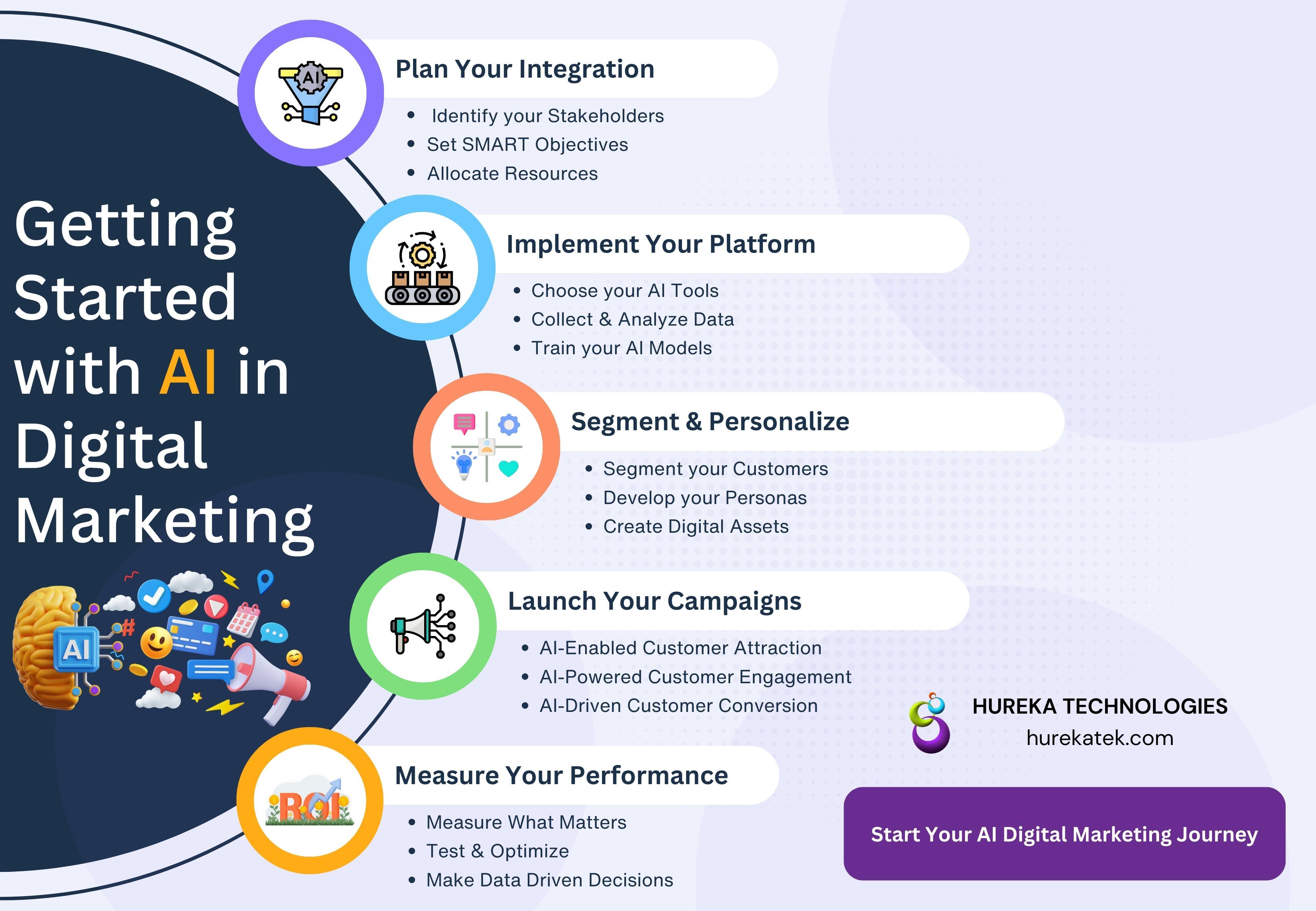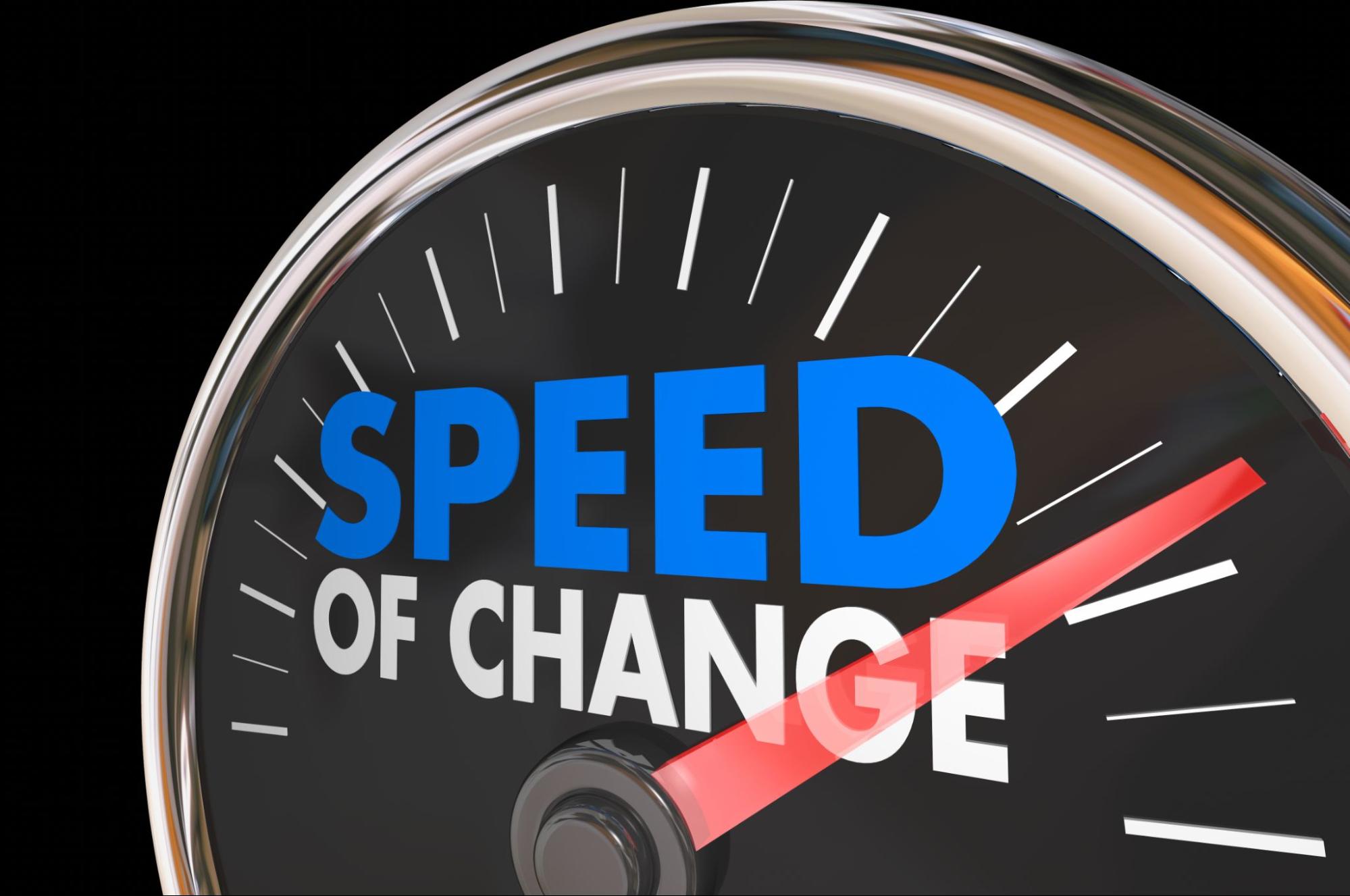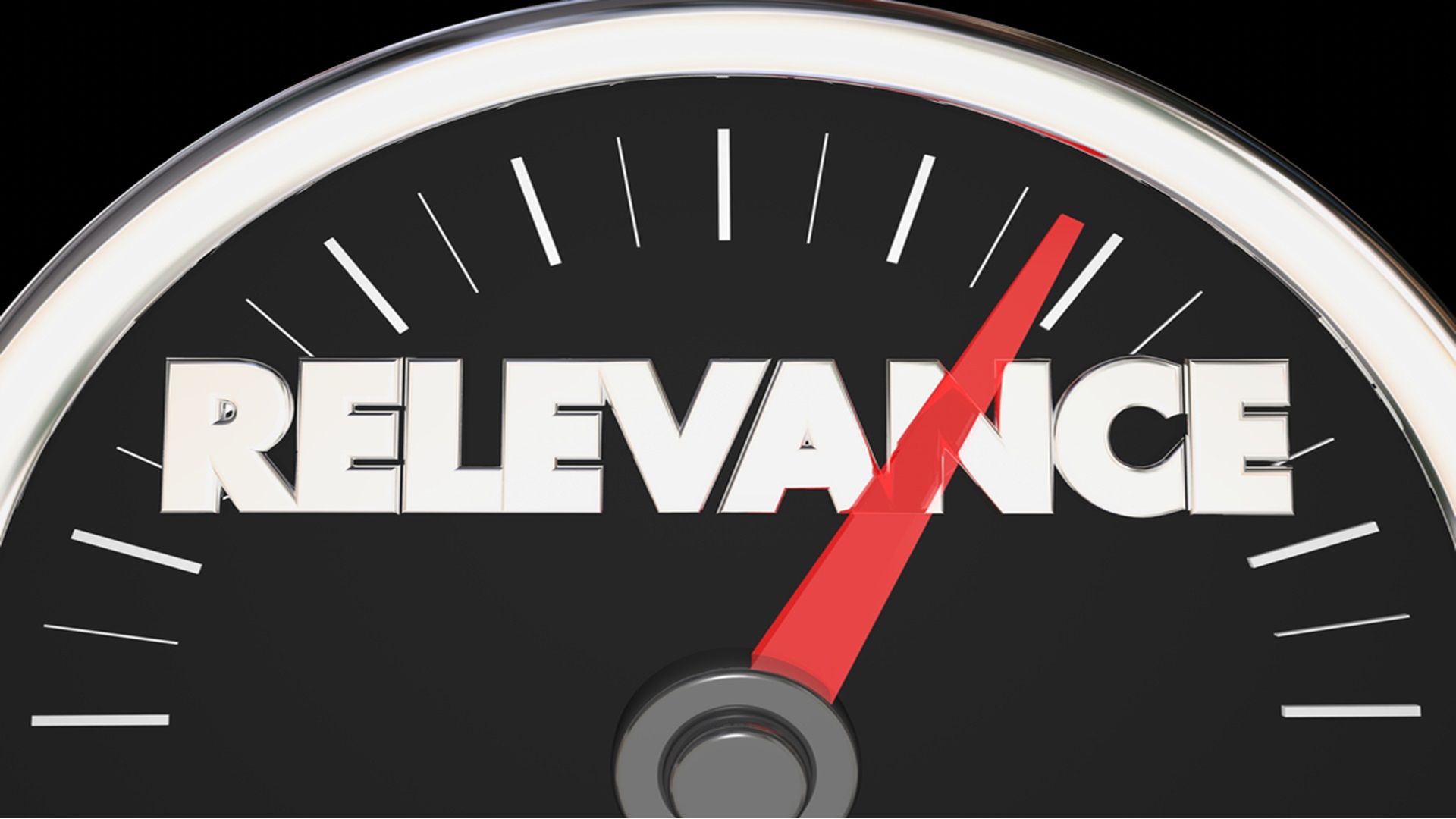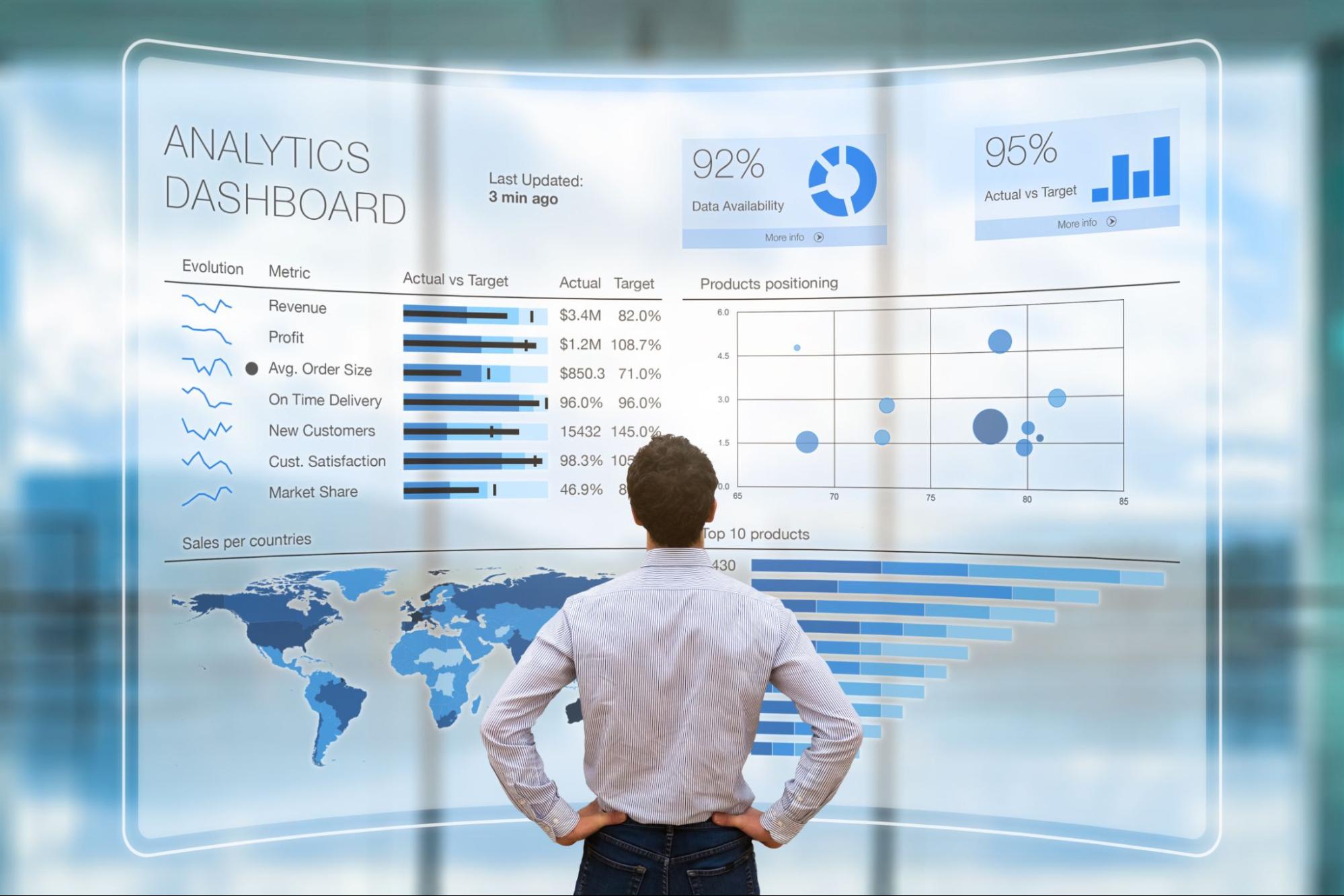The AI in Digital Marketing Manifesto
The age of AI in digital marketing is upon us. Businesses that fail to embrace this revolutionary technology will soon find themselves left behind, while those that successfully integrate AI into their digital marketing strategies will reap extraordinary benefits. The writing is on the wall - AI is the future of digital marketing.
For far too long, digital marketers have struggled with repetitive, manual tasks and inefficient workflows. AI promises to lift this burden through automation, personalization, and optimization at a scale previously unimaginable. No longer will businesses have to sacrifice quality for quantity in their digital marketing efforts. AI will enable more relevant, impactful campaigns and customer experiences without requiring more time or resources.
The integration of AI is inevitable. Early adopters will have a clear advantage, while laggards will struggle to catch up. Now is the time to develop an AI strategy - before your competitors beat you to it. Treat this manifesto as a call to action. The AI revolution is here. Take bold steps to implement AI across all your digital marketing activities, or risk getting left behind. Partner with AI for your website development, ecommerce, SEO, content marketing, social media, email marketing, analytics, automation and more.
This is a new era of possibilities. But potential will only be realized through decisive action. The choice is clear - evolve your digital marketing with AI, or face irrelevance! The future belongs to those who bravely embrace change. Be counted among them!

What Exactly is AI?
Artificial intelligence, or AI, refers to technology that is capable of performing tasks that would otherwise require human intelligence. At its core, AI is the development of computer systems that can perform tasks that typically require human skills such as visual perception, speech recognition, decision-making, and language translation.
AI encompasses a variety of technologies and techniques, including:
- Machine learning - algorithms that can learn and improve from data without explicit programming. Machine learning powers technologies like recommendation engines and image recognition.
- Natural language processing - the ability of computers to analyze, understand, and generate human language. Used in chatbots, virtual assistants, and sentiment analysis.
- Computer vision - the ability to extract meaning and intent from visual inputs like images and videos. Enables applications like image classification and object detection.
- Robotics - using AI to empower robotic systems to handle tasks in the physical world. Self-driving cars are one example.
- Expert systems - using rules and logic to emulate the decision-making ability of a human expert. Widely used for applications like medical diagnosis.
The goal of AI is to create intelligent machines capable of assisting humans in a variety of contexts from transportation to healthcare and beyond. AI algorithms continue to evolve in their ability to think, learn, reason, and interact like humans through natural language processing and pattern recognition.
While narrow AI focuses on singular tasks, general AI aims to possess multifaceted human intelligence and awareness. Though true general AI does not yet exist, today's AI systems are rapidly advancing and being integrated into our everyday lives in countless ways. The possibilities for AI support across business functions like digital marketing are vast.
Why Digital Marketers Must Adopt AI Now

The competitive landscape today demands that digital marketers embrace AI. Early adopters of AI in digital marketing are already pulling ahead, while laggards face mounting pressure to catch up or risk obsolescence. The time for digital marketers to adopt AI is now - here is why:
Consumer expectations have shifted in the age of personalization. Today's customers expect highly tailored, relevant brand experiences across channels and platforms. Meeting this demand for individualized engagement at scale is only possible through AI. The technology allows marketers to harness data to understand each customer and deliver customized messaging and recommendations.
The volume of marketing data being generated has exploded. Marketers today are overwhelmed by data, but much of it remains underutilized. AI provides the ability to process huge datasets and derive actionable insights to optimize campaigns. Instead of just collecting data, AI lets marketers make sense of it.
Marketing workflows are ripe for automation. Mundane repetitive tasks can be handled by AI, allowing marketers to focus on creative, strategic work. Intelligent assistants leverage natural language processing and machine learning to automate essential functions like social media, email, and ad campaign management.
AI augments human capabilities. Rather than replace marketers, AI amplifies their skills. Systems can quickly analyze competitor strategies, trends, and customer feedback to inform better decisions. AI also enables predictive capabilities to model future outcomes.
First-mover advantage awaits as leading brands like Amazon, Netflix and Uber adopt AI for personalization, forecasting, automation and other applications. Digital marketing laggards will struggle to catch up if they delay implementation, as now is the time to integrate AI.
The marketing AI revolution is imminent. Digital marketers who fail to capitalize on the competitive edge AI delivers risk losing relevance. By deploying AI now, marketers can preempt rivals and cement their brand as an industry leader. Adopting AI today paves the way for long-term survival and success.
Getting Started with AI in Digital Marketing

Integrating AI into your digital marketing stack may seem daunting, but following a strategic, step-by-step approach makes the process manageable.
Planning Your AI Integration
The first step is laying the groundwork for an effective AI implementation that aligns to your overall business goals. Rushing into AI adoption without proper planning risks wasted time, money and effort. Be intentional, realistic and methodical as you work to incorporate AI across your digital marketing activities.
Setting Clear Objectives
Having a defined roadmap is imperative. Start by setting clear, measurable objectives you want to achieve with AI in digital marketing. These will guide your strategy and technology selection. Consider objectives like:
- Improving campaign performance by 25%
- Increasing conversion rates by 15%
- Reducing cost per lead by 30%
- Automating 30% of social media content creation
- Personalizing 50% of email campaigns
Set both short-term goals to garner quick wins and long-term milestones to work toward. The objectives will inform the required AI applications and tools. Continuously evaluate progress against your objectives.
Budgeting for AI
Adopting AI requires upfront and ongoing investment. Carefully audit your budget to fund the necessary tools, talent, data infrastructure, and training required. Some key costs to account for:
- AI software licensing/subscription fees
- Data management, storage and labeling
- Cloud computing power
- Talent acquisition and training
- Integration and maintenance
Consider starting small with pilot projects before scaling AI across all activities. Allocate budget in phases to match projected returns. Continuously assess performance to double down on AI applications with the highest ROI.
Identifying Key Stakeholders
A cross-functional team is ideal to steer AI adoption. Identify key stakeholders across technology, digital marketing, analytics, customer service and design. Educate team members on AI applications for marketing to build buy-in. Clearly define roles and responsibilities for developing and implementing your AI roadmap. Foster collaboration between departments and build a culture that embraces AI-driven transformation.
Production and Implementation
Once the groundwork is laid, the next phase is putting your AI plan into production and implementing it across digital marketing activities. This requires focus on choosing the right tools, managing data, and training models.
Choosing the Right AI Tools and Platforms
The software tools and platforms form the foundation of your AI ecosystem. Thoroughly assess options to find solutions suited to your use cases, data environment, and technical expertise. Key considerations include:
- Ease of integration with existing martech stack
- Data connectivity and management features
- Model building and training capabilities
- Scalability to grow with your needs
- Transparency around how the AI works
- Vendor reputation and customer support
Leading solutions include enterprise AI platforms like IBM Watson and niche tools for applications like conversational AI chatbots. Prioritize flexibility and open architecture. Start with a limited product scope before expanding across all digital activities.
Data Collection and Management
Fueling AI requires access to quality, well-organized data. Audit your existing data and build a strategy for collecting and labeling new data to train algorithms. Plan for data security, storage, and governance. Identify gaps to fill by gathering more customer intelligence across touchpoints.
Don’t underestimate the resources required for data management. But the investment will pay dividends as accurately trained models supercharge performance. Follow best practices for data hygiene and opt for user-friendly platforms.
Training AI Models
Like humans, AI models need proper training before deployment. Test algorithms on available data and tweak based on performance. Iteratively improve accuracy through retraining. Use clear success metrics tailored to your objectives.
Plan regular model maintenance and retraining cycles as new data emerges. Document institutional knowledge around model optimization. Patience is key - it takes time for AI to learn and master tasks. Solicit user feedback to continuously refine AI performance.
With the right staffing, tools and data in place, implementing AI across digital marketing is an attainable goal requiring diligent execution of a well-planned roadmap. Stay adaptable, monitor progress against KPIs, and work closely across teams. Deploying AI is not one-and-done, but with the right foundation, the systems will rapidly amplify marketing performance.

Personalization with AI
Personalization is one of the most valuable applications of AI for digital marketing today. By harnessing data and machine learning, AI allows marketers to deliver tailored messaging and experiences that resonate at the individual level. Let's explore some key ways to leverage AI for next-level personalization.
Customer Segmentation
Granular customer segmentation powers true one-to-one personalization. With AI, marketers can analyze data like demographics, behavior, preferences, and intent to automatically group customers into cohorts. This replaces broad segmentation like age and gender with nuanced clusters based on multiple attributes.
AI reveals shared traits and patterns within the noise of customer data to define micro-segments. Machine learning algorithms can continuously optimize targeting as new inputs emerge. Marketers can then craft content and campaigns customized to each segment's common interests and needs for relevance at scale.
Personalized Content Creation
Creating personalized content manually is time-intensive. AI streamlines the process through automated copywriting and creative generation. Natural language generation tools can customize emails, landing pages, ads and other content to match individual interests.
AI content tools tap into datasets and past messaging to produce original text and assets tailored to customer segments. This scales the production of relevant, resonant content faster than human marketers. AI doesn't replace human creativity but augments it for accelerated personalization.
Dynamic Website Experiences
Consumers expect personalized web experiences. AI enables customizing site layout, content, offers, navigation, and more for each visitor in real-time. Machine learning algorithms dynamically assemble page elements based on individual user profiles and behavior.
Transform static web content into living, breathing experiences that adapt to engage each visitor. Tailor product recommendations, on-site search results, targeted promotions and other site content by integrating AI into the tech stack. The result is individually customized web experiences at scale.
Leveraging AI for personalization helps marketers stand out. By delivering tailored interactions across the customer lifecycle, AI fosters deeper engagement, loyalty and brand affinity. Choose use cases aligned to core business goals to maximize the impact of AI-powered personalization.
Promotion Strategies with AI
AI opens new possibilities for orchestrating smarter, optimized marketing campaigns and promotions. Introducing automation and intelligence into key channels allows for more efficient and effective ways to connect with target audiences.
AI-Powered Ad Campaigns
The data-driven nature of AI is a game changer for managing digital advertising campaigns. AI automates manual tasks like bidding, budget allocation and creative testing to optimize performance. Machine learning dynamically adjusts campaigns based on real-time inputs.
Marketers can leverage AI-powered ad platforms to:
- Continuously refine target audience parameters
- Predict optimal bids to meet cost and conversion goals
- A/B test ad creative and messaging
- Strategically allocate spend across platforms and formats
- Analyze performance data to optimize campaigns
This automation and intelligence allows for maximizing the impact of ad investments and reaching the right customers.

Email Marketing with AI
AI elevates email marketing through automation, segmentation, personalization and optimization. Intelligent email platforms can handle list management, design templating, and multi-variant sends autonomously.
Automated workflows triggered by user behaviors and preferences replace one-size-fits-all email. AI generates tailored content for each subscriber segment for relevance. And it continuously monitors performance indicators to refine campaigns.
Social Media Automation
Juggling multiple social platforms is complex. AI-enabled tools help streamline social media marketing through intelligent automation. AI manages functions like cross-posting content, monitoring conversations and moderating comments.
AI chatbots engage visitors in personalized conversations at scale on sites like Facebook Messenger. And machine learning identifies opportunities to reach new audiences and amplifies content based on past performance.
AI grants marketers the twin benefits of automation and optimization for smarter promotion campaigns. Prioritizing the right applications accelerates performance while freeing up valuable time and resources.
Performance Measurement
To maximize results, AI initiatives must tie to clear success metrics. Intelligent systems can both track KPIs in real-time and run experiments to refine performance. Here are some key ways AI enhances measurement.
KPIs and Metrics
Align AI applications to concrete marketing metrics like clicks, conversions, engagement, reach and sales. Establish benchmarks and data infrastructure to continuously monitor progress on key performance indicators.
AI excels at processing high volumes of data from disparate sources to serve up unified dashboards. This grants visibility into what's working at a granular level applied across segments, campaigns, platforms and more.
A/B Testing and Optimization
AI takes the guesswork out of experimentation through continually running multivariate tests. Machine learning algorithms autonomously set up A/B and multivariate tests and tweak variables like content, subject lines, imagery, offers and more.
By using historical data and real-time inputs, AI identifies the top-performing combinations for optimization. Tests that would take months for humans are executed within days or hours.
ROI Analysis
Proving marketing ROI requires connecting spending to tangible business impacts - a complex analysis made scalable by AI. AI modeling accurately forecasts the true return across activities in a dynamic way not possible manually.
Analysts can adjust budgets and strategies to maximize ROI. Quantifying marketing's contribution to revenue provides evidence to justify investments and guide resource allocation.
With comprehensive performance tracking and optimization, AI enables a cycle of continuous improvement. Marketers receive actionable insights tailored to their unique business context to keep strategies sharp and results consistently improving.
AI in Website Development
A company's website is often the first touchpoint between brand and customer. Integrating AI into website development creates more engaging, intuitive and useful experiences for visitors. AI is revolutionizing areas ranging from design to UX to search and commerce.
Dynamic Website Design
Traditional web design relies on static pages with fixed templates and content. AI enables designing intelligent sites that customize layout, images, copy and more for each user in real time.
By harnessing visitor data and machine learning, the website structure dynamically adapts to match user preferences and intent. This creates a living website experience that evolves as users interact with the content.
AI also plays a growing role in generative design. Creative AI tools help generate web page templates, imagery, and even content optimized for specific audiences. Automating rote design work allows creators to focus on high-level strategic direction.
Chatbots and Virtual Assistants
Chatbots leverage natural language processing to understand visitor queries and respond with relevant information or recommendations. The AI assistants can handle common tasks like answering product questions, booking appointments or processing orders.
Integrating bots creates always-on customer service channels and improves site search capabilities. As the technology advances, conversational AI platforms are becoming more adept at natural, contextual interactions.
Chatbots complement human agents by managing simple yet frequent customer requests. This frees up staff for complex issues while delivering quick self-service for site visitors.
User Experience Enhancement
AI makes websites more intuitive through features like predictive search, recommendations engines and on-site personalization. Understanding each user's intent enables serving up tailored content, journeys and incentives.
Computer vision AI analyzes visitor on-site behavior such as scroll patterns and click tracking to refine site design and UX. Heatmaps reveal how users navigate pages to eliminate friction points.
AI continually tests and experiments to drive optimization. The technology provides both data-driven design insights and the ability to instantly customize experiences to delight every website visitor.
AI in eCommerce
AI is transforming eCommerce through more intuitive search, customized recommendations, improved logistics and enhanced security. By tapping into data and automation, AI helps create frictionless, engaging shopping experiences.
Personalized Product Recommendations
Product suggestions based on purchase history and browsing represent one of the most popular AI commerce applications. Powered by algorithms, recommendations expose shoppers to relevant products they may have otherwise overlooked.
The AI analyzes factors like past transactions, search terms, product views and wishlists to discern individual interests. Dynamic recommendations then display products tailored to each shopper across the site and in emails.
This one-to-one personalization keeps customers engaged. Shoppers benefit from a more streamlined path to products they want to buy resulting in higher conversions.
Chatbots for Customer Support
Conversational AI chatbots field common customer queries to complement human agents. Shoppers can get support resolving issues, tracking orders, making returns and more through natural dialogue.
Smart chatbots tap into order data, FAQs and support ticketing history to address requests. This provides quick self-service for customers while reducing call volume for human staff.
Over time, the AI keeps improving through machine learning. Chatbots also give companies data-driven insights about customer pain points to fix.
Fraud Detection
AI helps retailers combat fraud through enhanced risk assessment, behavioral analysis and anomaly detection. By scrutinizing data points like order details, payment info, device fingerprints and geolocation, AI can identify suspicious activity.
Complex machine learning algorithms discern patterns to separate legitimate transactions from fraudulent ones with greater accuracy than rule-based systems. This prevents revenue lost to fraud while minimizing false declines for customers.
AI builds an on-going probability profile for each shopper to authorize transactions in real-time. As fraud patterns evolve, AI models dynamically update to maintain security.
AI in SEO
Search engine optimization is a data-driven endeavor perfectly suited for AI assistance. By processing signals from search engines and users, AI refines everything from keyword targeting to site optimization.
Keyword Research and Optimization
Identifying high-potential keywords is foundational to SEO. AI automates keyword discovery using datasets like search trends, competitor rankings, and search intent.
AI evaluates monthly volumes, competition levels, relevance and other attributes to recommend promising keyword targets. The technology also performs ongoing monitoring and adjustments to capitalize on emerging opportunities.
With AI continually optimizing keyword, pages can rank for the terms likeliest to drive traffic. Manual guesswork gives way to data-backed intelligence.
Content Auditing
Creating SEO-friendly content takes research. AI streamlines auditing existing site content for optimization opportunities.
Natural language processing scans pages to analyze readability, word count, keyword usage, heading tags and more. AI flags outdated or underperforming content for updates focused on target keywords and topics.
This allows for smarter content strategies and efficient site migration at scale. AI identifies pages in need of refresh or consolidation for maximum discoverability.

Rank Tracking and SERP Analysis
Monitoring search engine results page (SERP) rankings is table stakes for SEO. AI elevates rank tracking through comprehensive, nuanced data gathering.
Rather than just page rankings, AI digs deeper into SERP features, ad placements, local packs and competing domains. This 360-degree competitive view informs strategy refinements to gain rankings.
AI also predicts future ranking scenarios based on ongoing search algorithm changes. Tools automate reporting to align stakeholders around technical and content optimization priorities for better visibility.
AI in PR
Public relations pros are tapping into AI for identifying influencers, monitoring coverage, and creating content. Automating rote tasks allows PR teams to focus on strategic relationship and narrative building.
Media Monitoring and Sentiment Analysis
Monitoring press hits and social conversations is essential but time-consuming for PR. AI automation makes the process more efficient and insightful.
After defining key brand keywords and sources to track, AI scours the web for relevant mentions. Natural language processing gauges the sentiment and tenor of coverage over time. Practitioners can identify trends and respond accordingly.
By handling listening at scale, AI frees up capacity. And digestible analytic reporting provides strategic insights for reputation management.
Automated Press Release Generation
Writing and distributing press releases is a common PR task. AI tools can automate draft creation based on company news, events and announcements.
After inputting basic details like the news hook and quotes, AI generates human-sounding press release copy customized for the announcement. Practitioners simply review and refine the drafts before distribution.
This accelerates getting timely, optimized releases to media outlets to capitalize on messaging opportunities.
Influencer Identification
Influencers amplify brand awareness and credibility. AI makes finding and vetting relevant influencers more scalable.
Based on target customer demographics and brand values, AI scours social platforms to identify influencer prospects with engaged audiences. Automated tools rank influencers based on credibility, topics and reach.
This provides an objective starting point to evaluate partnerships. AI influencer identification reduces a traditionally manual workflow to tap into word-of-mouth marketing.

AI in Content Marketing
Creating a steady stream of engaging content is challenging. AI lends a helping hand through automated content production, strategic distribution and performance tracking.
Content Creation and Generation
The foundation of effective content marketing is producing useful, compelling content tailored to your audiences. But the need to continually churn out fresh assets often strains marketing resources. AI-powered content creation tools help close this gap through automated long-form and short-form content generation.
AI content platforms tap into data sources like past content libraries, keyword research, and customer analytics to produce targeted copy. Natural language generation capabilities allow the AI to craft blogs, social posts, emails, and more autonomously while maintaining brand voice and tone. Marketers provide overall directional inputs and parameters, which the intelligent algorithms use to output polished draft content.
This automated approach to content creation expands production volume and personalization without compromising quality. The AI continually learns and improves based on performance data and feedback. While human review and refinement is still essential, AI assumes the heavy lifting of initial ideation and draft creation. This ultimately allows marketers to reallocate time previously spent on rote content production to focus on big picture strategy and maximizing engagement.
Content Distribution Strategies
Getting created content in front of its ideal audience is the next integral challenge, requiring the coordination of numerous elements from channel selection to partnerships. Here too AI lends a strategic, analytical hand through data-driven content distribution automation.
AI systems can ingested past performance metrics, audience demographics, competitive contexts and more to model the best content format, channel mix, and sharing schedule for reach and engagement. Algorithms determine which platforms and influencer networks each asset should be distributed through and when it should be posted based on historical data.
The AI also tracks real-time engagement data across channels and adjust adjustments accordingly. Lower than expected click-through rates on Twitter can trigger an increase in Facebook promotion for that post, for example. By handling the complexity of spread content effectively, AI allows for efficient, dynamic distribution strategies.
Content Performance Analysis
Getting content out is only half the battle - tracking how each piece performs is essential to honing strategy. But compiling and acting on volumes of analytics from views to conversions is tedious work. AI grants marketers an at-a-glance view of content analytics through automated reporting.
AI synthesizes data from across content libraries and platforms into interactive dashboards spotlighting top and underperforming content. This allows for aligning teams around successes to replicate and areas needing improvement. The technology pinpoints macro trends, like topics and formats resonating across audiences as well as granular insights like which promotion times work best per channel.
Content teams can leverage these AI-generated insights to continually refine creative ideation, distribution tactics, and overall strategies. With AI monitoring and optimizing content performance, marketers can publish more effectively, act on trends faster, and improve results over time through a process of constant learning.
AI in Social Media Marketing
Social media is an essential channel for brands today to engage consumers, drive awareness, handle customer service, and gain market insights. However, managing a dynamic real-time presence across multiple platforms poses immense challenges for marketing teams.
This is where AI comes in - to provide structure, automation, and optimization for orchestrating effective social strategies. By integrating AI capabilities like machine learning and natural language processing, marketers can streamline social listening, automate posting, and deploy conversational chatbots to new heights.
Social Listening and Trend Analysis
Active listening on social media offers invaluable consumer and competitive insights for guiding strategy - if marketers can find signal in the noise. Monitoring the firehose of real-time social conversations is extremely difficult to do manually. AI automation makes large-scale social listening possible through always-on conversational analysis.
AI social analytics tools tap into selected keywords, influencers, hashtags, and handles to ingest relevant brand-related content across platforms. Natural language processing parses this social data to detect trends and themes related to the company, competitors, and industry. Sentiment analysis reveals how perceptions and reactions to products and messaging are evolving.
Marketers gain an aggregated birds-eye view of consumer opinions over time to guide strategies. For example, AI could quickly surface growing shipping delay complaints or reactions to a new campaign. The technology handles processing high volumes of unstructured social data to derive strategic insights both proactively and reactively.
Automated Social Posting
Executing a strategic social media presence requires consistent quality content creation and posting across networks - a monumental workload. AI lending a helping hand through intelligent social media management platforms that automate rote posting tasks.
AI tools curate and generate relevant social post ideas and copy tailored to defined audiences and brand voice. Algorithms factor in variables like imagery, word count, media type based on past performance data to create optimized updates for each platform. Natural language generation outputs snappy, engaging copy for human review.
AI also handles posting updates across networks at optimal times based on past analytics. With the ability to continually test timing and message variations, AI maximizes reach and engagement through data-driven posting automation. This efficiency enables social marketers to focus less on content creation and more on big picture listening, relationships, and campaign strategy.
Chatbots for Customer Engagement
Chatbots powered by conversational AI represent a whole new avenue for customers to engage with brands on social media. These intelligent programs chat with visitors 24/7 on platforms like Facebook Messenger to share information and resources.
The AI chatbots tap into knowledge bases, FAQs and past exchanges to respond contextually to customer inquiries in natural language. Users enjoy quick self-service for common questions without hold times or email back and forth. The machine learning algorithms continually improve chatbot relevance based on real conversations.
Chatbots provide a friendly, personalized social customer experience that boosts satisfaction. They complement human agents by managing simple yet frequent inquiries so staff can resolve more complex issues. Socially-native customer service chatbots meet consumers on platforms they already frequent.
AI in Email Marketing
Email marketing remains an indispensable channel for brands thanks to its cost-efficiency, measurability, and versatility. But cutting through the noise to connect meaningfully with subscribers represents an ongoing challenge. This is where AI comes in to take email marketing strategies to the next level through hyper-personalization, optimization, and predictive analytics powered by data. Integrating machine learning and automation can help marketers deliver more relevant, engaging email programs tailored to the unique interests and behaviors of each subscriber. Let's explore some of the key ways AI is transforming email for the better.
Personalized Email Campaigns
The cornerstone of effective email marketing is sending the right message to the right recipient. But manual personalization across subscriber lists is painstaking. AI automation makes personalized email scalable through dynamic content and segmentation.
Powerful email marketing platforms leverage customer data and machine learning to tailor messaging for hyper-targeted one-to-one personalization. AI generates customized copy, offers, product recommendations, and more tailored to individual subscriber profiles and behaviors.
Automated segmentation powered by AI allows for grouping users based on multiple attributes like demographics, purchase history, and engagement. Fine-tuned targeting replaces broad batches. AI enables email relevance at scale based on a granular understanding of each subscriber.

Email A/B Testing and Optimization
Optimizing email requires continual experimentation, which AI excels at through automated A/B and multivariate testing. Algorithmic tools craft and send creative variants changing elements like imagery, copy, calls-to-action, subject lines and send times.
By analyzing historical data and real-time engagement metrics, AI identifies top-performing combinations and applies insights across email programs for improvement. AI quickly iterates through endless permutations to determine optimized design and content.
Predictive Analytics for Email Engagement
Understanding both individual subscriber engagement and broader campaign performance is integral for email success. AI grants granular visibility through predictive user-level analytics.
Intelligent models forecast the probability of engagement actions like opens, clicks and conversions for each subscriber based on historical data. These propensity scores inform personalized targeting and messaging tactics. AI also spots macro trends across campaigns.
With AI providing actionable performance insights, marketers can continuously tailor email programs to maximize relevance, deliverability and business impact.
AI in Customer Service
Delivering top-notch customer service is essential for brands today. However, managing high inquiry volumes across channels like email, chat, and phone makes meeting rising expectations challenging. By automating repetitive tasks and providing data insights, AI enhances customer support across the board.
Let's look at some key ways artificial intelligence can improve customer satisfaction.
AI-Powered Chat Support
Live chat requires round-the-clock staffing to engage website visitors in real-time. AI chatbots provide instant, personalized support without the overhead.
Smart chatbots leverage natural language processing to understand visitor questions then respond with relevant answers or resources. The AI taps knowledge bases and conversation history to handle common inquiries like order status, returns, and product questions contextually.
Virtual assistants mimic human-like dialogue, satisfying customers with quick self-service and boosting brand perception. AI chatbots complement human agents handling more complex conversations.
Virtual Customer Assistants
IVR phone systems and one-size-fits-all emails frustrate consumers today. Virtual assistants powered by AI deliver tailored voice and digital experiences.
These intelligent bots identify individual users based on past interactions and profile data to personalize responses and recommendations. The AI also handles routine tasks like appointment booking and account updates via natural dialogue.
By providing an individualized touch across channels, virtual assistants boost satisfaction through efficient customized service.
Customer Feedback Analysis
Tracking and acting on customer sentiment at scale is impossible manually but essential. AI automates analysis of chatter, reviews, surveys and more to derive actionable insights.
Natural language processing scans unstructured feedback across channels to detect trends, themes and mentions. Sentiment analysis reveals how perceptions are changing over time. Dashboards highlight areas for improvement.
With AI continuously processing volumes of customer data in real-time, brands spot issues faster, understand needs better, and align operations more closely to voice of the customer.
AI in Advertising
Digital advertising holds enormous potential but also carries complexity in strategy, targeting, creative, and analysis. By injecting intelligence into the process, AI unlocks smarter, streamlined advertising capabilities for brands. Let's explore some key applications.
Programmatic Advertising
Programmatic advertising automates media buying and ad placement through technology, making the process efficient and data-driven. AI takes programmatic to the next level through enhanced decisioning.
Intelligent algorithms factor in goals, budgets, audience insights and past performance to execute the optimal media mix and bid amounts across channels. Machine learning continuously optimizes based on campaign performance.
Automated workflows powered by AI also handle creative testing, frequency capping, sequencing and cross-device targeting. This automation maximizes ROI from programmatic ad spend.
Ad Campaign Optimization
Capitalizing on advertising investments means continually testing and refining campaigns based on data. Manually managing this process is arduous.
AI platforms automate multivariate testing of elements like target segments, creatives, landing pages, bidding strategies, ad copy and more. Machine learning rapidly identifies the optimal combinations to improve campaign KPIs.
The ability to execute and learn from thousands of permutations in mere days allows for greater optimization agility. AI makes testing exponential - and advertising performance with it.
Ad Creative Generation
Ad creative design is a leading driver of engagement, but manually producing high-volume creative is time-intensive. AI lends a hand through automated ad design capabilities.
Ad creative AI tools take directional input and brand assets to generate relevant display ads, social posts, and even video storyboards tailored to target audiences. Humans simply review and refine AI-generated drafts.
By producing multiples creative options tuned to specific user cohorts, AI expands ideation bandwidth. The machine learning algorithms continuously improve creative relevancy based on performance.
AI in Analytics
Extracting strategic insights from data is a cornerstone of sharp marketing. But making sense of massive, complex datasets strains human limitations. AI analytics tools crunch numbers at scale to unlock 360-degree visibility and even future predicting modeling for clearer decision making.

Advanced Data Analytics with AI
Today's data volumes and diversity make gathering useful insights difficult. AI simplifies synthesizing disparate data for holistic analysis.
Automated reporting dashboards aggregate metrics from activities like web analytics, ad campaigns, and financial KPIs. Natural language queries allow digging deeper into cross-channel performance.
Marketers access a unified view of ROI, trends, and micro-conversions to optimize strategies. AI handles data prep, correlation, and visualization for accelerated insights.
Predictive Analytics
Understanding what will happen next is powerful. AI forecasting and modeling tools predict future outcomes based on historical datasets.
Algorithms analyze past performance to project scenarios for lead generation, revenue, churn, web traffic, and other targets. Models assist planning budgets, content, and operations.
AI identifies leading indicators and scenarios to steer strategies more confidently. Hands-off predictive analytics illuminate paths forward.
Customer Journey Analysis
Mapping tangled customer journeys is invaluable but tedious without AI. Automated mapping visualizes touchpoints and paths to purchase.
By mining data and signal correlation, AI reconstructs how target personas progress from awareness to consideration and finally conversion. Marketers see bottlenecks and opportunities.
Journey analytics informs personalized messaging and experience optimization. AI solves the complex jigsaw puzzle of multi-channel behavior data.
AI in Marketing Automation
Workflow automation streamlines cross-channel processes, while lead management and CRM data enhance personalization. Together, AI elevates marketing automation to be more efficient, insightful and impactful.
Workflow Automation
Managing intricate multi-step workflows across teams and technology requires immense coordination. AI automated workflow tools add orchestration and intelligence.
After mapping out the workflows, AI handles process triggers, assigning tasks, and app integration in the background. Machine learning optimizes workflows by identifying inefficiencies.
Intelligent workflow automation saves teams countless administrative hours. The technology coordinates complexity behind the scenes.
Lead Scoring and Nurturing
Determining sales-readiness and guiding prospects requires custom modeling beyond basic scoring. AI enables sophisticated lead analysis and nurturing.
Robust machine learning algorithms process CRM, form, and behavioral data to assign granular predictive lead scores. AI precisely identifies sales-qualified prospects for efficient hand-offs.
For remaining leads, AI informs personalized nurturing tracks based on their unique interests and progress. This accelerates sales pipeline velocity.
CRM Integration
Uniting CRM and marketing data is key but tricky. AI handles linking systems and extending profiles for seamless omni-channel personalization.
Bi-directional APIs and natural language processing allow AI to automatically share contacts, interests, and interactions between platforms. This breaks down data silos.
360-degree customer views fuel tailored messaging across channels and stages. AI bridges the gap between marketing automation and CRM.
AI in Lead Generation
For businesses today, sourcing and qualifying new potential customers is foundational to fueling pipelines and driving revenue. However, consistently generating a high volume of quality leads amid masses of website traffic and prospects poses immense data and targeting challenges. This is where artificial intelligence steps in to revolutionize lead generation through automated lead identification, sophisticated qualification processes, and conversion rate optimization powered by data and machine learning.
AI-Powered Lead Identification
Finding promising prospects among seas of anonymous website visitors and contacts can feel like locating the proverbial needle in a haystack. AI-driven lead identification solutions help pinpoint likely buyers based on behavioral signals and other attributes.
Lead scoring algorithms analyze visitor actions like page views, form fills, content downloads, and chat interactions to detect engaged users exhibiting buying signs. Natural language processing of sales chat transcripts can also detect purchase intent. The machine learning models automatically flag promising leads for follow up across platforms.
Lookalike modeling powered by AI is another potent approach, identifying new prospects that share traits with existing customers. This allows scaling outbound lead gen by precisely targeting relevant profiles open to marketing messages.
Automated Lead Qualification
Assessing the true sales potential of prospects is tricky but essential for focusing efforts on qualified leads. Manual lead scoring based on a few fields often misidentifies buyers and non-buyers. AI qualification enhances accuracy through holistic scoring models.
Robust machine learning algorithms ingest CRM data, behavioral signals, firmographic attributes, and more to assign granular predictive lead scores. This provides a reliable gauge of sales readiness based on historical deal data patterns. Lead routing and sales plays adjust dynamically based on the AI-defined prospect potential.
Ongoing automated re-scoring also accounts for new prospect activities over time. AI qualification provides actionable next-step guidance to maximize sales productivity.
Conversion Rate Optimization
Improving lead capture and conversion performance requires rigorous experimentation and analysis - difficult to orchestrate manually. AI lends its optimization prowess to conversion rate optimization.
AI CRO platforms automate multivariate landing page and funnel testing for elements like design, copy, promotions, and more. Machine learning algorithms rapidly discern optimizing combinations from thousands of potential permutations.
The insights power ongoing improvements to boost conversion rates. And smart AI tools provide ideas for new tests and experiments to run based on previous learnings. This enables perpetual optimization powered by technology.
With AI expediting lead identification, qualification, and website conversion, marketers can generate higher volumes of sales-ready prospects. Automating manual tasks allows focusing human efforts on strategic lead gen initiatives rather than tactical execution. AI brings speed, precision, and scale to elevating pipelines.
AI and You
The rise of artificial intelligence may cause apprehension for digital marketing professionals, but in truth AI represents an empowering force that will augment human capabilities rather than replace them. By embracing AI systems as partners, marketers can further hone their creative and strategic skills while keeping pace with customer expectations. Let's explore how AI will support marketers now and in the future.

The Future of AI in Digital Marketing
We remain in the early chapters of AI adoption in marketing. Already the technology has proven its utility from content creation to analytics - and continuous enhancements will only expand possibilities. In the future, AI will likely play integral roles across three key areas:
- Hyper-Personalization - AI will tap into integrated customer data from CRM systems, apps and IoT devices to power true one-to-one cross-channel personalization at mass scale. Dynamic content, recommendations and experiences tailored to the individual will be the norm.
- Predictive Insights - Advanced simulation and machine learning will provide accurate forecasts of the future, from sales projections to predicted customer churn risk. This foresight will bring clarity to guide strategies.
- Creative Automation - Natural language and image generation tools will enable AI creation of data-driven, original marketing content from ad copy to viral videos. This creative leverage will free human talent to focus on innovation.
AI's benefits to digital marketing will compound over time as the technology grows more powerful and ubiquitous.
Skills and Knowledge Required
To leverage AI effectively, digital marketers should prioritize skills including:
- Data proficiency - Understanding data flows, infrastructure and governance to properly train and employ AI
- Technical literacy - Grasping essentials of automation, APIs and integrations to deploy AI solutions
- Critical thinking - Framing business challenges and use cases where AI could provide an edge
- Results orientation - Rigorously testing and analyzing AI performance against key metrics and KPIs
- Creativity - Combining human ingenuity with AI capabilities to drive innovation
AI partners best serve marketers who marry analytical rigor with imagination. Marketers should embrace AI not as a threat, but as an opportunity to learn, create and solve problems in extraordinary new ways.
Ethical Considerations and Privacy
As with any transformative technology, AI merits careful governance regarding ethics and responsible data practices. Marketers should audit AI systems and data flows to ensure:
- Accountability - There are clear human points of control and oversight for AI tools
- Transparency - AI capabilities and inner workings are well documented
- Fairness - AI decisions and processes avoid unlawful bias or discrimination
- Security - Data flows and access points are protected and monitored
- Privacy - Consumer consent dictates permitted AI data usage
Honoring these principles is critical for earning consumer trust and protecting the reputation of AI systems and the brands leveraging them.
Used responsibly, artificial intelligence systems hold great potential to empower marketers with enhanced abilities. The future looks bright for marketers who embrace this revolution.
Challenges and Considerations
While artificial intelligence unlocks new marketing capabilities, integrating these technologies brings valid challenges around data, adoption, ethics and more. A measured approach helps manage risks and obstacles on the path to AI transformation. Let’s explore key considerations.
Data Privacy and Security
Fueling AI requires access to quality data - which raises privacy implications. Rigorous data governance must ensure consumer consent drives all AI data usage in compliance with regulations like GDPR.
Pseudonymization, selective data inclusion, permission controls and stringent cybersecurity protect consumer identities and build trust. Marketers must act as conscientious data stewards.
AI Implementation Challenges
Realizing AI’s promise requires overcoming technical hurdles around legacy systems, integrating new tech stacks, labeling training data and monitoring model accuracy.
IT partnerships, solution staging and talent investments in data science and machine learning engineering smooth deployments. Allocating ample testing time and starting with pilot projects reduce risk.
Overcoming Resistance to AI Adoption
Organizational resistance to new technologies is common. For AI, clearly communicating use cases and benefits builds staff support. Hands-on interaction diminishes skepticism.
Change management should emphasize AI collaboration rather than substitution, with transparency around how AI will transform specific roles and workflows. Patience and compassion ease transitions.
Ethical and Regulatory Considerations
To instill confidence in AI systems, marketers must ensure transparent, explainable and fair AI processes free of harmful biases. Adopting an ethical AI framework curtails risks.
Meanwhile, emerging regulations will likely continue governing use of consumer data and AI. Close legal guidance and regulatory awareness help maintain compliance as laws evolve.
With deliberate mitigation efforts, proactive marketers can overcome hurdles on the path to AI. The temporary challenges pale next to the permanent advantages AI confers.
Future Trends in AI and Digital Marketing
The integration of artificial intelligence into marketing is still in its early stages. As the technology advances, AI applications will grow more sophisticated, personalized and omnipresent across the customer journey.
Let’s take a look at some trends shaping the future symbiosis of AI and digital marketing.
AI-Driven Marketing Trends
In the next few years, experts foresee AI driving greater automation, predictive insights, and hyper-personalization across marketing:
- Intelligent workflows will handle more administrative, operational and campaign orchestration tasks autonomously
- Advanced simulation models will forecast business scenarios and prescribe strategies with increasing accuracy
- Customer data integration will power individualized messaging and experiences across all platforms and channels
As AI capabilities compound, marketing processes will become more streamlined, predictive and tailored than ever.
Emerging AI Technologies for Marketers
Cutting-edge AI innovations will also find increasing marketing applications, including:
- Generative AI - creating original text, audio, video and imagery
- Autonomous learning - algorithms self-improving without human input
- Multi-agent AI - coordinating teams of AI systems to solve complex problems
- Quantum computing - processing exponentially more data, faster
These technologies will unlock new dimensions of automated content, independent optimizations and mass customization.
Predictions for the Next Decade
Looking ahead to the 2030s, forward-thinking leaders predict:
- AI will facilitate biometrically-targeted ads viewable only by intended individuals
- Lifelike AI personas will engage customers via virtual and augmented realities
- Brain-computer interfaces will enable thought-activated personalization
- Nanoscale AI bots will swarm providing services nearly everywhere
While seemingly fantastical, these visions illustrate AI’s vast long-term potential to transform marketing.
Our Brave New AI in Digital Marketing World
Artificial intelligence represents a technological sea change on par with electricity or the internet for business. For digital marketing specifically, AI heralds a new era of enhanced productivity, creativity and personalization. By harnessing this intelligence revolution, forward-looking marketers can achieve unprecedented results.
The Power of AI in Transforming Digital Marketing
Integrating AI across marketing functions delivers manifold advantages:
- 24/7 availability via chat and voice customer service agents
- Improved campaign performance via continual optimization
- Strategic insights revealed through large-scale data analysis
- Accelerated content creation leveraging generative capabilities
- Increased efficiency through automating high-volume repetitive tasks
- Mass personalization and customization based on deep customer understandings
These benefits confer sustainable competitive edge to brands embracing AI transformation. The technology empowers marketers rather than replaces them.
Key Takeaways and Action Steps
For marketers looking to capitalize on AI’s potential, critical next steps include:
- Developing an AI adoption roadmap aligned to overall objectives
- Selecting pilot projects which provide clear use cases for initial rollout
- Maintaining transparency and ethics as core principles guiding AI usage
- Monitoring KPIs and metrics closely to refine implementations over time
- Assessing required integrations, data infrastructure, and technical capabilities
- Auditing existing workflows to identify automation and enhancement opportunities
With deliberate planning and commitment to innovation, AI pioneers can realize monumental improvements in the effectiveness, efficiency and personalization of their digital marketing. The future beckons for those bold enough to embrace it.
About Hureka Technologies
Choosing the right digital marketing partner is imperative for continued business growth in this age of constant technological change. Look no further than Hureka Technologies.
With integrity rooted in their ethos, Hureka leverages artificial intelligence across all marketing activities. Their proven frameworks optimize AI adoption aligned to your unique objectives. Our focus on relationships ensures collaboration drives success and our commitment to your continuous growth keeps strategies sharp through hands-on optimization.
Embracing AI's edge with human insight, Hureka delivers measurable improvements in efficiency, personalization and results. Our technical and creative talents work in agile development structure to convert data into decisions.
Let Hureka Technologies propel your marketing capabilities into the future with AI as an invaluable ally. The time to act is now - your competitors already are.
Contact us today to schedule your free consultation.
FAQ’s for AI in Digital Marketing
1. What are some key benefits of using AI in digital marketing?
AI enables greater personalization, automation, predictive analytics, and efficiency in digital marketing. AI systems can process huge volumes of customer data to deliver hyper-targeted messaging and experiences across channels. AI also streamlines repetitive tasks through machine learning workflows. This allows marketers to focus more on strategy and innovation.
2. How does AI enhance website development?
AI can revolutionize website development through features like dynamic page optimization, smart chatbots, and generative design capabilities. AI analyzes visitor data and behaviors to continuously tailor site content, navigation and UX for each user. AI chatbots also provide 24/7 support. And creative AI tools help automate production of assets like images.
3. What role does AI play in search engine optimization?
AI automates time-consuming SEO tasks like keyword research, content auditing and optimization, backlink analysis and rank tracking. Natural language processing and machine learning algorithms help identify lucrative keyword targets, optimize pages for search visibility, track rankings, and derive insights to improve performance.
4. How can AI be applied for social media marketing?
AI increases efficiency and optimization in social media marketing through features like automated post creation, chatbot deployment, campaign analytics, and listener sentiment tracking. These capabilities allow for managing high-volume, multi-platform social strategies with enhanced targeting.
5. How does AI improve email marketing?
AI enables more relevant, effective email marketing through hyper-personalized messaging, A/B testing, and predictive user analytics. AI platforms automatically customize email content for each subscriber based on their interests and behaviors. A/B testing identifies optimal designs. And predictive modeling forecasts subscriber engagement.
6. What are some ethical considerations with marketing AI?
Ethical AI deployment requires transparency, accountability, fairness, and rigorous data security. Marketers must be conscientious stewards of consumer data, ensuring it is protected and used only with opt-in consent. AI decisions must also avoid bias and discrimination. Maintaining human oversight of AI tools is critical.
7. What skills do marketers need to implement AI effectively?
Marketers need data proficiency, analytics acumen, creativity, technical literacy, critical thinking and strategic mindsets to successfully adopt AI. A clear understanding of data flows and infrastructure is crucial. Marketers also need ability to measure ROI and optimize based on results. Soft skills like change management facilitate adoption.
8. What are some challenges brands face with adopting AI?
Challenges can include data integration complexities, technical hurdles, organizational resistance, regulatory unknowns and ethical risks like bias. Thorough planning, starting small to test and providing AI training helps mitigate pitfalls. Developing rigorous data governance and being transparent about AI processes promotes trust.
9. How will AI for marketing advance in the future?
Experts predict marketing AI will become more predictive through simulations and models, leverage generative technology for custom content, and power biometrically-driven personalization. Marketing is likely to become almost fully automated powered by interoperating AI agents specialized for different functions.
10. How can marketers start implementing AI today?
Marketers should audit capabilities and workflows to identify automation opportunities. Start with a limited pilot before scaling. Assess technical gaps. Develop a phased rollout plan with clear objectives. Maintain focus on driving measurable ROI. Partner closely with IT and arm staff with AI training. Monitor progress continuously and refine over time.
11. How is AI used in digital marketing?
AI is used across digital marketing for applications like personalized ad targeting, predictive analytics, content creation, social media automation, chatbots, and more. AI analyzes consumer data to optimize campaigns through machine learning algorithms.
12. Is AI taking over digital marketing?
AI is not taking over digital marketing completely, but rather enhancing human capabilities. AI handles rote tasks like data processing and content production, freeing up marketers to focus on strategy and creativity. The technology amplifies marketers rather than replaces them.
13. What is the best AI tool for digital marketing?
Leading AI tools for marketing include IBM Watson, Google Cloud AI, Amazon Personalize, Adobe Sensei, and SAP C/4HANA, ChatGPT-4 and Claude. The "best" solution depends on specific use cases and stacks. Marketers should assess ease of integration, data connectivity, scalability, and transparency.
14. How is AI going to affect digital marketing?
AI will allow marketers to deliver more predictive, personalized, and optimized consumer experiences across channels. Marketing workflows will become more efficient through automation. And creative bandwidth will expand with AI content generation capabilities.
15. What are the challenges of AI in digital marketing?
Challenges include data integration complexities, lack of technical expertise, misguided expectations, ethical risks like bias, and organizational resistance. With deliberate mitigation efforts, proactive marketers can overcome hurdles to realize AI’s advantages.
16. What are the advantages of AI in digital marketing?
Key advantages include increased efficiency through automation, enhanced personalization and customer insights powered by data, improved campaign performance via continual optimization, and expanded creative capabilities for content production. AI delivers significant competitive edge.









